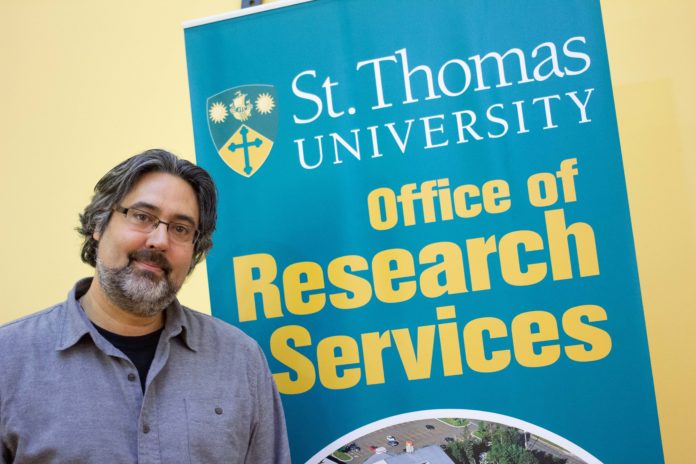St. Thomas University’s pilot Community Connectors program strives to alleviate social isolation in seniors by providing them with information about opportunities for engagement in the community.
Set to launch in January, the program involves a network of volunteers with Meals on Wheels will provide information for those who seek community activities. The method of outreach is conversational, with volunteers trained to strike up a conversation and identify signs of isolation. This will also promote pre-existing community initiatives in Fredericton.
Albert Banerjee, the New Brunswick Health Research Foundation research chair in Community Health and Aging at STU, proposed the program in 2020 to address isolation in a “group of people that was not being reached”.
He said the driving force of the program is to reshape the dialogue around how social isolation is discussed.
“Ultimately it’s about a conversation. That’s the heart of it,” says Banerjee. “I would rather talk about opportunities for connection and engagement. If you’re addressing [isolation], you might as well talk about connection. It changes the happiness balance.”
Banerjee said he hopes the program can be shared with other organizations so that it becomes self-sustaining and ingrained in Fredericton’s social fabric.
He said he believes that our “age-segregated” Fredericton society medicalizes aging instead of humanizing it.
“We tend to keep young and old people apart,” said Banerjee. “We know about the body but we don’t pay attention to what happens in terms of biography or narrative or wisdom or creativity. Aging is really about moving through time… [It’s about] recognizing that we are all vulnerable.”
Lyne Ouellet is a Ph.D. student at the University of New Brunswick in interdisciplinary studies and works with Banerjee as a research coordinator. From her experiences working in clinical settings, she is committed to advocating for older adults and adopted the Community Connectors project as her research thesis.
“Social isolation is so multifactorial — not only one solution can do it all,” she said.
The program has currently undergone three rounds of funding and collaboration with provincial and federal public health agencies.
Ouellet describes the program as “the outer layer of the onion” in addressing social isolation and shares that communities in Fredericton will bring the topic to a more individualized level.
“We are an information source,” said Ouellet. “We identify the lonely, connect them to a resource and other programs will localize on how to help their integration into the programs,” she said.
Ouellet said the project began with the idea of assessing the usefulness of local community organizations and initiatives, then led to an inductive approach where the elderly were interviewed about their experiences with isolation.
In future, she hopes that the program can encompass all vulnerable populations.
“The issue of isolation and loneliness — no one is immune to it. I’m hopeful that we can help out people who really could benefit from things out there that they don’t even know could help them,” she said.

